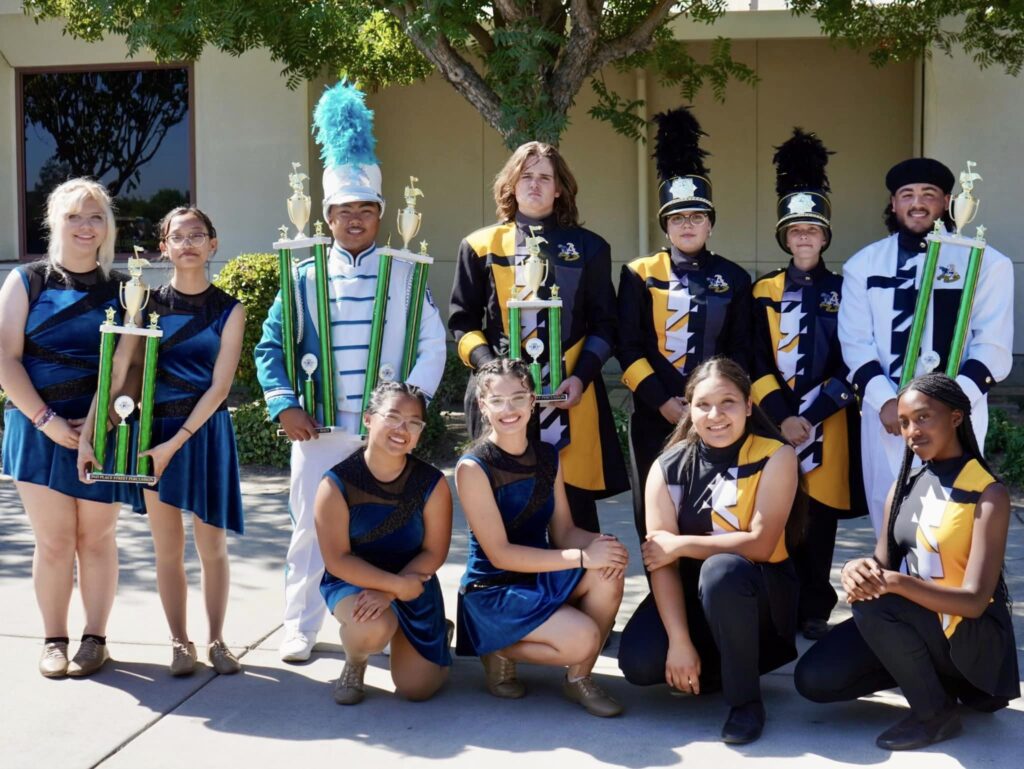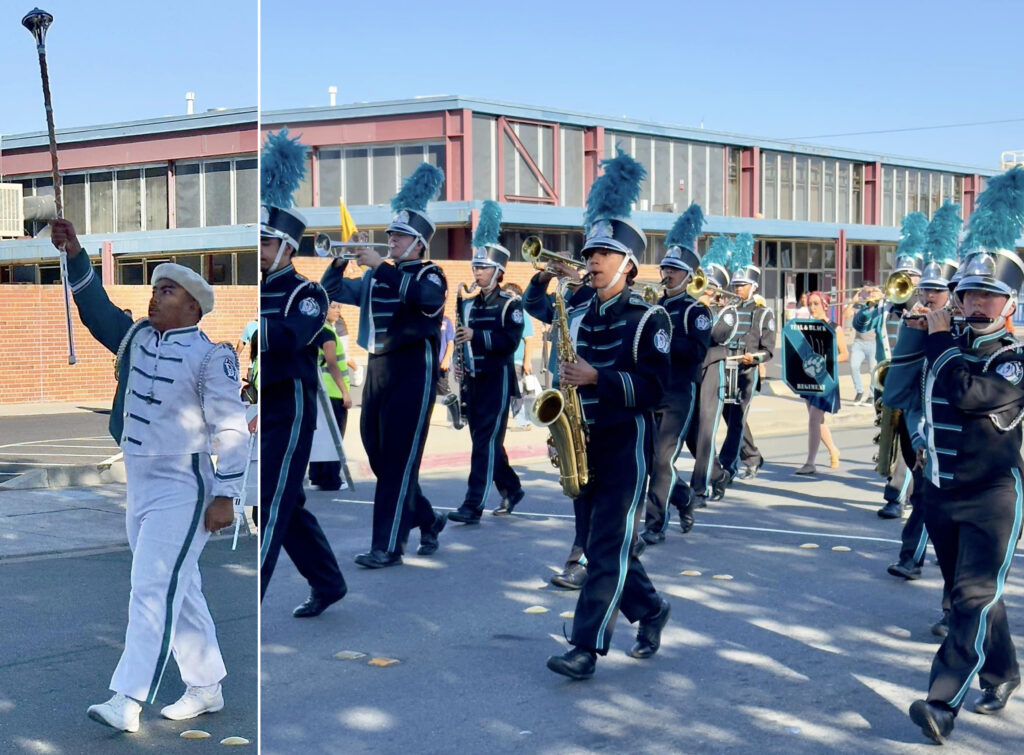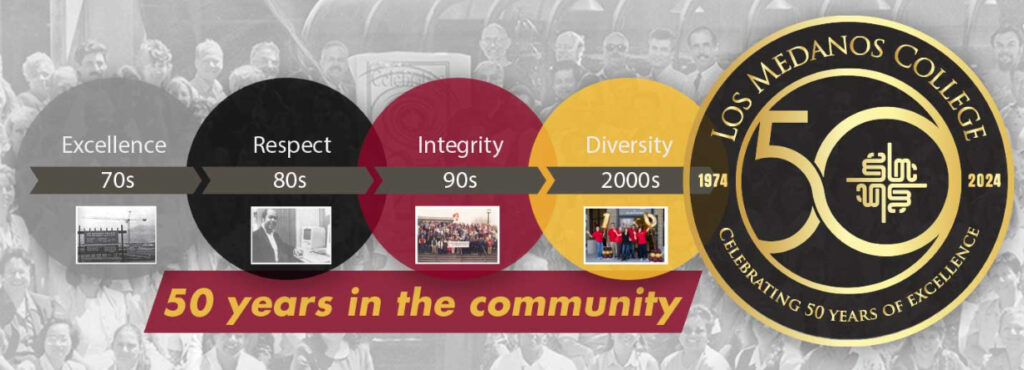Departing Antioch School Board Trustees Hack, Lewis bid farewell
Saturday, November 16th, 2024
Lewis announces scholarships for 2 students, grants for 2 staff members from personal funds
By Allen D. Payton
During the regular meeting of the Antioch School Board on Wednesday, Nov. 13, 2024, Area 3 Trustee Dr. Clyde Lewis and Area 4 Trustee Gary Hack offered farewell remarks as the next meeting will be for the new board members to be seated. That will be Olga Comos-Smith in Area 4 who defeated Hack in his run for a fourth term on the board and is expected to be Dee Brown who continues to lead Scott Bergerhouse in Area 3, replacing Lewis.
Lewis was elected in 2020 in his second run for the board. At one point Lewis was considered a possible candidate for Mayor of Antioch or city council. He also chose not to seek either of those positions. Hack previously served from 2010-14, then lost for re-election and came back in 2016 and won two consecutive terms.
In a post on Lewis’ official Facebook page Wednesday night he wrote, “Tonight is bittersweet. While I decided not run for re-election, I am saddened by the realization that I will no longer be a school board member. The past 4 years have been filled with many ups and downs, joys and stresses. I have lost a lot, but have learned a great deal. I want to thank the community who believed in me enough to elect me, and I hope my service lived up to your expectations. I look forward to continuing to work with the school district and am excited for the future of our community.” He tagged it with #TrusteeLewis #AntiochUnifiedSchoolDistrict #loveofcommunity

About Hack, Acting Superintendent Dr. Rob Martinez said, “He has served as president three times. He has brought tremendous years of service to the district and we’re very grateful for his time on the board, for the work that he has done for the children of this community.”
Martinez said about Lewis, “We’re also recognizing Dr. Clyde Lewis. He has served as president for one time and as vice president for one time and, again has made a focus of working to expand opportunities for many of our students in relation to their technical skills, career and technical, having opportunities to grow.”
“We thank you both your tremendous leadership,” the superintendent added. “We would all like to thank you and appreciate your service to the board.”
Each were then presented with their official photos that hung on the wall inside the District offices.
Hernandez said, “If there’s one thing that I respect more than anything about both of these people up here, it’s that they’re both up here doing the work. It really does take an extra step of leadership to step into the area and try to do what’s best for students.”
“So, I appreciate you being up here,” he continued. “I appreciate all the years that you’ve given to the school district, to our students, here. I appreciate the ideas you brought forth, the perspective that you bring and I hope you continue to share that with the community.”
Board Vice President and Area 5 Trustee Mary Rocha spoke next saying while looking at Lewis, “One of things I find amazing is your knowledge and what I’ve always said to him, ‘you should be a professor.’ He should be at the college level. He just has that ability and knowledge. And I look forward to the ROTC because you brought it forward and I think that’s a wonderful thing for our district. I admire you and I thank you very much. It’s nice to get to know your fellow person because. I’m happy to have known you and to be with you and I don’t want to lose track of you.”
“And then Gary, over there, we go back so many years,” she continued having mentioned Hack was a teacher at Sutter Elementary where her son attended. “A lot of you don’t know but he’s my deacon at my church. So, he has so many hats that he wears. It’s just one of those things where we built a relationship and we don’t have to say much to each other because we already know. Thank you very much, Gary.”
Area 2 Trustee Dr. Jag Lathan spoke about her colleagues last saying, “I just want to thank you all, both Trustee Hack and Trustee Dr. Lewis for your work. This not easy work at all. But it’s really good work and I hope that you both have some really good time off and you can enjoy in other ways service to our students. So, thank you.”
Hack’s Parting Comments
Trustee Hack was the first of the two departing board members to speak saying, “Actually, it surprises me that as time goes by I came to Antioch when I was in my mid-twenties. I had hair and a beard. And I moved to this brand new elementary school called Sutter. That’s where I spent a lot of my life. I just loved teaching. I love that age of kids.”
Pointing toward Rocha he said, “Mary’s one of the first parents I ever ran into not that I’ve known her this long. But it’s this experience. I did the union stuff, I did the bargaining stuff. I got into all that stuff. But the reality is just the kids.”
“I still love going to activities at schools and seeing the kids do spelling bees or play football, or do whatever they do,” Hack continued. “I said, ‘you know? Education. Fantastic.’ And I’m just lucky to be in that situation for so many years.”
Lewis Offers Farewell Speech
During his public comments at the beginning of the Board meeting Lewis said, “I have a prepared speech because I’m kind of a nerd that way. “He then said, “Good evening, everyone. This is my final school board meeting, and I want to take a moment to reflect on my time serving this community.
When I initially ran for this position eight years ago (actually he ran six years), I did so to be a voice for students, teachers, staff, and families. I wanted to ensure our schools had the resources and support they needed to provide an excellent education for all. Looking back, I am proud to say we have made great strides in achieving that vision.
Together, we have increased funding for classroom supplies, upgraded technology in our schools, and expanded mental health resources for students. We have also worked hard to strengthen relationships with our teachers’ union, custodial staff, and administration – recognizing that a collaborative approach benefits everyone.
Most importantly, we’ve kept students at the center of every decision. Their success has been and will always be the driving force behind the work we do.
As a final gesture, I’m honored to announce that a few scholarships are being awarded today. As I have mentioned, I lost a close personal friend in my senior year of high school. This friend had everything needed to make it. He was smart and had interpersonal skills and ambition. He did not get the chance to receive this type of scholarship, so I would like to honor his legacy by supporting a young person whose teachers believe he would use these funds as a springboard to a bright future. While I recognize these funds will not eliminate all college costs, I hope they can help. Also, during my board tenure, I lost my mother. The second scholarship to be in her honor. She worked tirelessly as a campus security during her career, in addition to all the effort she put into raising my siblings and me. To honor her legacy, I am giving a small scholarship to our hard-working staff. Lastly, I would like to give a small scholarship to our hard-working teachers, who develop the minds of our young people, which is noble beyond words. In sum, the scholarship breakdown will be:
- Two (2) $200 scholarships for graduating seniors
- A $100 scholarship for an outstanding teacher
- A $100 scholarship for a deserving member of our custodial staff
These scholarships are a small way to recognize the incredible contributions of our students, educators, and support staff. They are the lifeblood of our district, and I’m grateful to have had the opportunity to serve alongside all of you.
Thank you for your tireless efforts on behalf of Antioch’s youth. I know the district will continue to thrive under the incoming board’s leadership. It has been a privilege to be part of this journey, and I look forward to seeing what the future holds.
God bless Antioch Unified School District, and may we continue to shape the next generation of leaders.”
Details on Scholarships
On Thursday, Nov. 14, Lewis posted again providing more details about the scholarships, two in honor of a friend who died while they were in high school and his mother, who passed during his term on the school board.
He wrote, “As I mentioned last night, as a final gesture, I’m honored to be in position to offer a few final scholarships. When I was a senior in high school, I lost a close personal friend. This friend had everything needed to make it. He was smart, had interpersonal skills and ambition. He did not get the chance to receive this type of scholarship, so I would like to honor Tracey Kareem Smith’s legacy by supporting a young person that their teachers believe would use these funds as a springboard to a bright future. While I recognize these funds will not eliminate all college costs, I hope they can help.
“Also, during my board tenure, I lost my mother. I would like the second scholarship to be in her honor. She worked tirelessly as a campus security during her career, in addition to all the effort she put into raising my siblings and me. So, to honor the legacy of Jamesetta Watson, I would like to provide a small scholarship to our hard-working staff.
“Lastly, I would like to provide a small scholarship to our hardworking teachers, who aid in the development of our young people, which is noble beyond words.”
At the end of the meeting Lewis said he plans to distribute the scholarships at the end of the school year.
Asked later if the funds were left over from his campaign account, Lewis said, “they’ll be out of my own pocket.”
Final Comments
“I’m still going to continue to do the work and be in the community. So, thank you all for having me these last four years,” he added.
“It’s been fun. Six decades since I entered this district,” Hack stated. “I’m still here and next board meeting I may be out there watching you.”
Board President Antonio Hernandez, who was re-elected with no opposition to the Trustee Area 1 seat in the Nov. 5th election, then offered final coments about his departing colleagues, “I want to end my comments by saying how important school boards are and how underappreciated they can be. I know there’s a lot of work and time spent.”
“We make a lot of really important decisions here and over the past four years, Trustee Lewis, Trustee Hack you all helped make really, really, very valuable decisions and again, very often so overlooked,” he continued. “But there’s a lot of power, there’s a lot of trust, a lot of responsibility to the community, there.”
“So, again appreciate the time you all served here, on the board,” Hernandez added.
Hack is a retired teacher from the district and the former president of the Antioch Education Association, the local teachers’ union. Dr. Clyde Henry Lewis, Jr. will continue working as an Executive Coach through his business, Onessis International, and as a part-time Faculty Lecturer at U.C. Berkeley’s Haas School of Business.









































